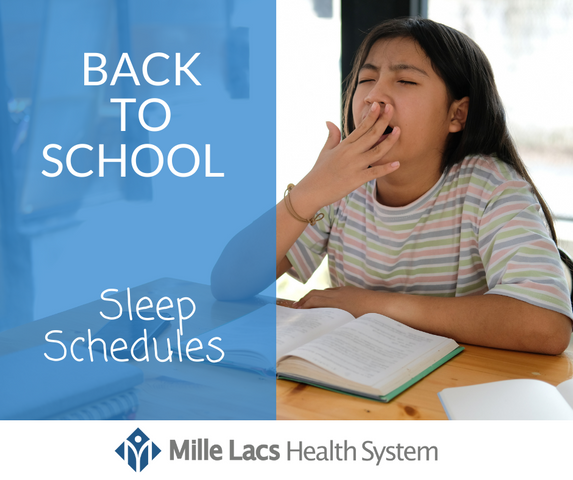
Sleep is vital to every student’s success. Adequate sleep contributes to a student’s overall health and academic performance.
According to the Center for Disease and Control (CDC) approximately seven out of ten students do not get enough sleep on school nights.
Children and adolescents who do not get enough sleep have a higher risk for many health problems, including obesity, type 2 diabetes, poor mental health, and injuries. Lack of adequate sleep also contributes to attention and behavior problems, which can lead to poor academic performance in school. Students getting the proper amount of sleep every night will benefit from improved concentration and memory likely improving their academic performance.
School-aged children six through twelve years old are recommended by the CDC to get between nine to twelve hours of sleep every 24 hours. Children ages 13-18 years old are recommended to get between eight to ten hours of sleep every 24 hours.
Here are a few things you can do to encourage a healthy sleep schedule for children:
- Make sure the kids are getting at least one hour of physical activity each day.
- Establish a bedtime routine such as reading, brushing teeth, etc, and avoid electronics at least one hour before bedtime.
- Limit sugar and caffeine intake a couple of hours before bedtime.
- Provide a quiet, cool, and dark environment for sleeping.
- Set bed and wake-up times at the same time each day, including weekends.
- Limit the use of the bed for daily activities other than sleeping (no homework, electronics).
Sleep can be thought of as the power source that recharges students during the night so they can thrive during the day. Encourage the students in your life to prioritize sleep for their health and their academic success.
About the Business
(36 reviews)
Have a question? Ask the experts!
Send your question

